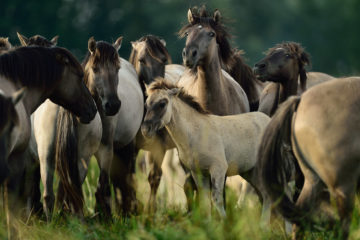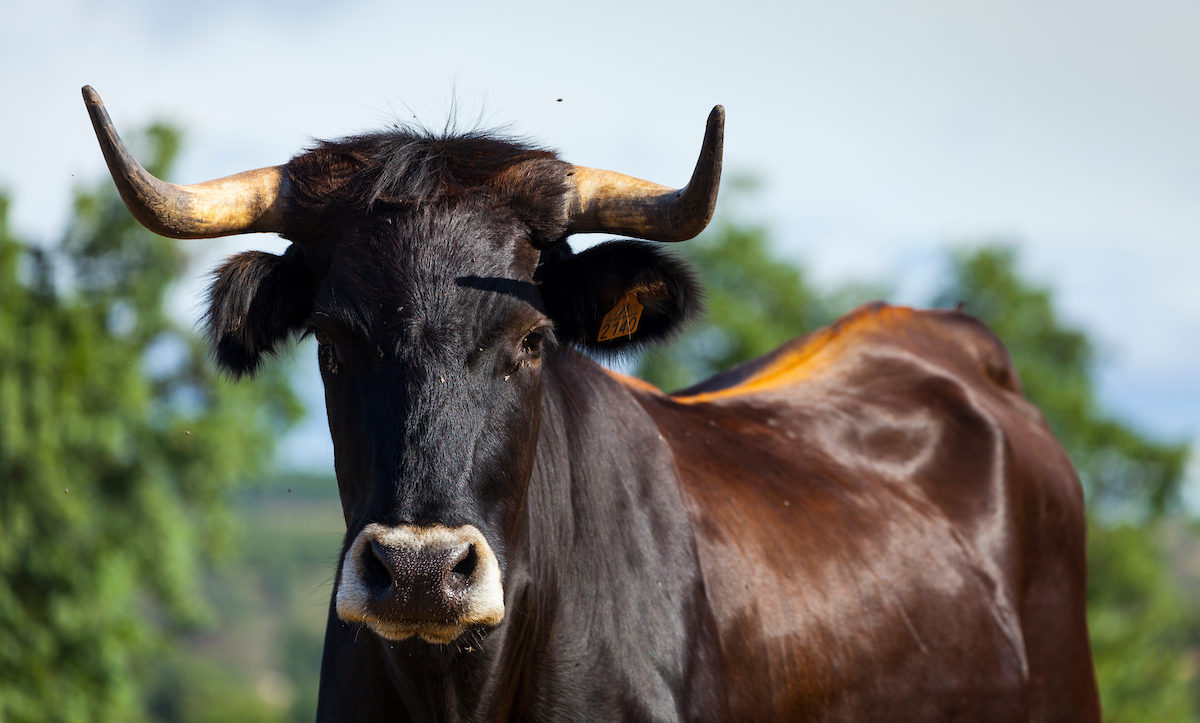The expansion of natural grazing across rewilding areas and in areas that are part of the European Rewilding Network is one of Rewilding Europe’s key priorities. Last November, Julia Clark began as the new coordinator for the reintroduction and restocking of wild / semi-wild herbivores.

Launched in 2013, Rewilding Europe’s European Wildlife Bank (EWB) facilitates the reintroduction and restocking of herbivores to rewilding areas across the European continent. It has already proven successful, supplying animals to mutiple sites across Europe.
With a varied career taking in animal health and welfare, veterinary work and international trade policy, Julia Clark began as EWB Coordinator in November. Her position is supported by the Arcadia Fund, the UK based charitable trust of Lisbet Rausing and Peter Baldwin that supports charities and scholarly institutions that preserve cultural heritage and the environment.
Julia will be responsibe for coordinating and organising the transport of animals between different rewilding areas.
We had a brief chat with Julia to find out about her, her passion for wild nature, and how she sees her new role panning out.
Rewilding involvement
Why did you decide to become involved with rewilding?
I have been interested in the conservation of wild animals since learning more about issues such as the international trade in elephant ivory and shark fins. These problems are very complex, because they are highly politicised, involve different cultural aspects, and can threaten the economic viability of communities in many less developed countries. Developing legal frameworks that can effectively be applied to these international problems and the ethical dilemmas surrounding them particularly interests me.
I first heard about rewilding and Rewilding Europe a couple of years ago, in relation to my interest in large carnivore conservation. By restoring ecological processes that influence all elements of trophic cascades, rewilding promotes the comeback of large carnivores, which are typically present in healthy, biodiverse habitats. Rewilding also enhances the nature-based solutions that can help us to mitigate pressing challenges such as climate change and biodiversity decline.
European Wildlife Bank

What is your added value to the European Wildlife Bank?
I view the EWB as a tool that enables the growth and expansion of wild herbivore herds in Europe, a key element in restoring and creating wild nature.
I think I can contribute to the wider vision of Rewilding Europe in promoting an approach that has its roots in the concepts of “One Health” and “One Welfare”. This approach emphasises the connections between animal welfare, human wellbeing, conservation and the environment. I also have experience of official controls during the international transport of animals.
How would you like to see the bank develop over the next five years?
I would like to see the EWB continue to grow and extend its influence, all the while maintaining sustainable and healthy populations of herbivores. My priority for now is to ensure that we have animals where they are needed and when they are needed.
Wild nature in Europe
What would you say are the biggest conservation challenges that Europe faces today?
There are so many! One of the biggest relates to the fact that nature conservation has traditionally been perceived as an area or entity separate from any other.
This isolationist viewpoint is now gradually changing, with governments increasingly open to a more holistic approach that recognises the vital connections between biodiversity, animal and human health, and wellbeing.
The work that Rewilding Europe has been doing for years contributes to this shifting institutional mindset.
How do you see the future of wild nature in Europe?
There are obviously many challenges facing European wildlife, but I’m far more optimistic than I was a few years ago. So many experts and scientists in Europe and across the world are doing great work to tackle degraded ecosystems and encourage wildlife comeback.
I feel inspired by any story or experience where communities adopt a new attitude and push themselves to act in a different way. For example, when groups of people successfully find a way to co-exist with large predators, coming together with action plans that they implement themselves – sometimes with very little support from local or regional governments – this gives me great hope.
Do you need wild nature in your life?
Yes, who doesn’t need nature? It helps me put into perspective the stuff that we have to deal with in our daily lives. I’m very fortunate to live on the outskirts of a tiny village and nature is just around the corner, although true wildness is a bit scarce in the south of England!

